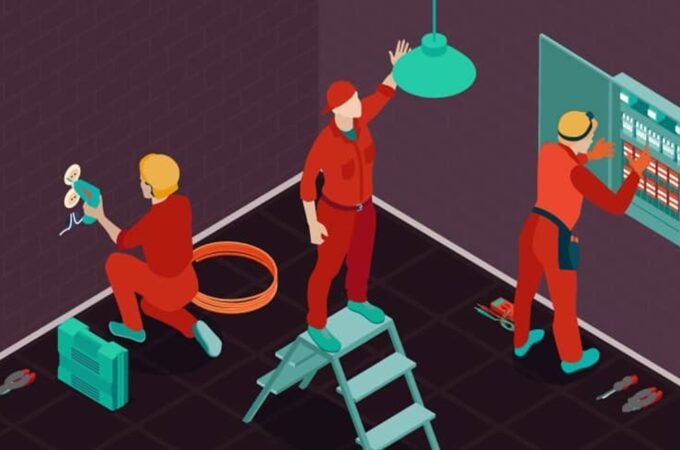
Downsizing in Retirement – 5 Things to Consider
As a senior in retirement, you will experience many life changes. One of those changes will likely be downsizing homes. The term “downsizing” means to make something smaller, such as your home. Most homeowners never move into a house intending to downsize later. However, when you are in your later years, living in a big home may be more work than you can handle. So, here are five things to consider when downsizing in retirement.
Table of Contents
Toggle1. When is the right time to downsize?
One day you are raising your children in your family home, and the next thing you know, you are living in a big home that requires too much up-keep. Knowing when to downsize is not always easy, but timing truly is everything. However, many seniors aren’t so sure when the right time is.
There are many signs that indicate it’s time to downsize. For example, if cleaning and housework become overwhelming, then it is time to consider downsizing. Many seniors live on a fixed income, so paying someone to help manage your home is not the ideal route to go.
Another sign to downsize is if you have too many vacant rooms inside your home. If you have multiple rooms inside your home that no longer serve a purpose, you should downsize to a home that provides enough space for the things you need. When you have vacant rooms inside your home, you are spending money to heat and maintain those empty rooms, but downsizing would fix this problem.
2. Relocation matters
Once you decide when the right time is to downsize, you will need to consider where you want to relocate. Are you interested in downsizing to a single-family townhouse? If so, you must consider the outdoor maintenance, such as plowing snow or mowing the lawn. If not, are you interested in living in apartment senior living? There are many options to consider when deciding where you want to relocate to.
In retirement, you do not have a career holding you back from relocating and downsizing; As you can downsize homes across the street, or you can downsize across the globe. That is another thing you must consider, the location. Do you want to stay local or move across the nation? If you have family or grandchildren, you will want to consider them when comparing the pros and cons of moving towns.
3. Decluttering your belongings
The number one step to downsizing is decluttering your belongings. Moving to a smaller space means you cannot take everything with you. However, this is typically the most challenging part of downsizing. Luckily, there are a few questions you can ask yourself to help with discarding some of your possessions:
- When was the last time I took this out of the box?
- When was the last time you read it?
- Is this an unfished project? Will I work on it again?
- When was the last time I touched this?
- And if you keep thinking, “I might use this someday,” you can go ahead and toss it.
If all your answers are indicating you need to throw away that belonging, then throw it away. Now, you do not have to throw out all your memorabilia. You can begin to put your belongings into “keep,” “give,” and “store” categories; this can give you a fresh start in your new, downsized home.
4. Lifestyle
Whenever you downsize, you will want to ensure that you move to a location that matches your lifestyle. It is essential that as a senior, you continue to build friendships and maintain a social life. According to St. Joseph Health, social interactions in older adults can reduce the risk of some cancers, osteoporosis, and cardiovascular problems.
When you find a city you would consider downsizing too, take a day to explore the community. This is a great way to meet new people and see if the city has any senior activities that interest you. For example, many cities have fitness classes for seniors, a senior community center, or volunteer work to keep your days busy.
5. Will your Medicare travel with you?
There are many things to consider when downsizing, but one thing many might not think about is their health insurance. If you move across town or to a different state, will your Medicare travel with you? If you only have Original Medicare, you will be safe to move anywhere, as Medicare does not have network restrictions.
The same rules apply to Medigap plans, as they work alongside Original Medicare. Medigap plans do not have network restrictions, so if a doctor accepts Medicare, then he/she will take your Medigap plan. However, when you move to a new city, consider shopping rates for your Medigap plan, as rates differ per zip code.
Now, if you have a Medicare Advantage plan, you must notify your carrier that you will be relocating (unless your service area does not change). You will need to notify your carrier because Medicare Advantage plans have service areas, such as HMO or PPO plans.
However, regardless of plan type, if you are outside your service area for more than six months, you will likely be dis-enrolled from your Medicare Advantage plan and will return to Original Medicare.
When you move to a new location with a Medicare Advantage plan, you are granted a guaranteed issue right. This means you will have a new opportunity to either purchase a Medigap plan without underwriting or a Medicare Advantage plan with a new network.
Conclusion
There are many aspects to consider when downsizing in retirement. However, if downsizing seems like a breath of fresh air, then start your planning process and get to downsizing today!
Mark Ligon is the Marketing Manager at a leading e-commerce store in plumbing supply. Mark focus is on DIY projects and providing creative and practical advice to individuals looking to complete DIY projects of their own





